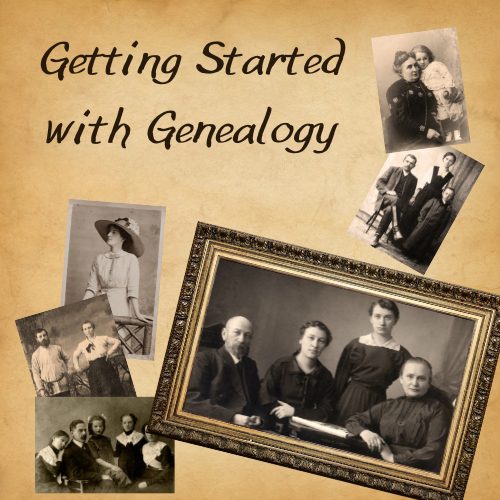Genealogy is like putting together a fascinating puzzle where every piece reveals a part of your family’s story. It’s a journey of discovery, a way to connect with your roots and an opportunity to learn about the people who came before you. If you’ve ever considered diving into the world of genealogy, this blog post will guide you on how to get started.

Begin with what you know
The best place to start is with your own family. Gather information about your parents, grandparents, aunts, uncles, and cousins. Document names, birth and death dates and any other relevant details. Family gatherings and old photo albums can be treasure troves of information.
Organize your data
Maintaining a system to record and organize your findings is crucial. Consider using genealogy software like Ancestry.com or Family Tree Maker. These tools make it easier to input, store and search for information. They also allow you to connect one source to multiple individuals, eliminating the need to enter the same information more than once.
Interview relatives
Talk to your older family members. They might remember details, stories or even have old documents, such as letters or diaries, that could provide valuable insights into your family’s history. Record audio or video of your family members telling stories about their lives and how they were affected by events going on around them.
Document everything
As you gather information, make sure to record your sources, including searches and sources that turned up no results. This is crucial for genealogy accuracy and will help you avoid repeating research or dead ends. Keep a separate record of information that you’re unsure of and need to further research. This helps you avoid cluttering your tree with potentially inaccurate data.
Visit local archives and libraries
Local archives, libraries and historical societies are great resources. You might find records such as birth certificates, marriage licenses, wills, deeds, tax records and old newspapers. Many of these archives have made their collections available online, and some offer research services if you can’t visit in person.
Explore online databases
The internet is a genealogist’s best friend. Websites like Ancestry.com, FamilySearch and MyHeritage offer extensive databases that can help you discover ancestors and build your family tree. These services usually offer some features at no cost, but have different subscription plans that allow access to advanced features or certain databases. Many local historical societies and libraries maintain subscriptions to multiple websites for visitors to use for free.
Join genealogy communities
Connect with other genealogists to seek advice, share your findings and learn from their experiences. Genealogy forums, social media groups and local genealogy societies can be excellent places to connect. There are thousands of Facebook groups covering everything from general genealogy to location and surname research, and group members are often willing to help with searches and overcoming obstacles.
Be patient
Genealogy can be a slow and sometimes frustrating process. Not all records are available, and you’re likely to encounter dead ends occasionally. Don’t give up. Your patience and perseverance will be rewarded if you stay the course.
Preserve and share
Your research is not only for your benefit but also for your family’s. Share your findings, stories and pictures with relatives, and consider creating a family history book or website to preserve your family’s legacy.
Getting started with genealogy is a journey filled with surprises, mysteries and discoveries. With patience and determination, you can uncover the rich tapestry of your family’s history, creating a meaningful and lasting connection to your roots.
